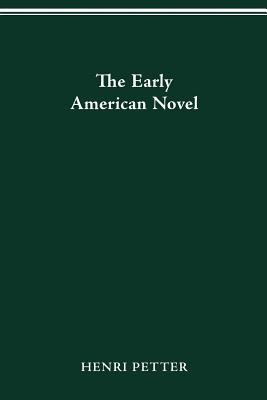
- We will send in 10–14 business days.
- Author: Henri Petter
- Publisher: Ohio State University Press
- ISBN-10: 0814253466
- ISBN-13: 9780814253465
- Format: 15.2 x 22.9 x 2.9 cm, softcover
- Language: English
- SAVE -10% with code: EXTRA
Reviews
Description
This descriptive and critical survey of the American novel up to the year 1820 seems certain to gain recognition as the definitive work on its subject. Prompted by an awareness of how unevenly the predecessors of James Fenimore Cooper have been studied and made accessible to the modern reader, Mr. Petter has completed a work of literary historiography that lucidly and systematically deals with an astonishing amount of information. The novels published in America in the three decades preceding 1821 are marked, above all, by the limited range of their authors, who tamely and unimaginatively copied English and Continental models. At first sight their plots strike one as inventive-even wildly so-but it soon becomes evident, in Mr. Petter's analysis, that they merely achieve new combinations of old and familiar elements. The underlying patterns-lovers' trials, young girls' vicissitudes, young men's adventures-depend on, and reveal the passivity of, the heroes and heroines. The active elements are unsympathetic parents, jealous rivals, petty surroundings, agents of pure evil, and providential interventions. The plots hinge on strained coincidences and contrived misunderstandings combined with apparent infringements of the social barriers and conventions that puzzle the protagonists and the reader until a more or less fortuitous and spectacular revelation restores the certainties. The characters are subordinated to the events and remain undeveloped and static. There are few moods and tones. The emphasis is on the didactic confrontation of good and evil. Henri Petter is professor of English and American literature at the University of Zurich in Switzerland.
EXTRA 10 % discount with code: EXTRA
The promotion ends in 18d.12:04:35
The discount code is valid when purchasing from 10 €. Discounts do not stack.
- Author: Henri Petter
- Publisher: Ohio State University Press
- ISBN-10: 0814253466
- ISBN-13: 9780814253465
- Format: 15.2 x 22.9 x 2.9 cm, softcover
- Language: English English
This descriptive and critical survey of the American novel up to the year 1820 seems certain to gain recognition as the definitive work on its subject. Prompted by an awareness of how unevenly the predecessors of James Fenimore Cooper have been studied and made accessible to the modern reader, Mr. Petter has completed a work of literary historiography that lucidly and systematically deals with an astonishing amount of information. The novels published in America in the three decades preceding 1821 are marked, above all, by the limited range of their authors, who tamely and unimaginatively copied English and Continental models. At first sight their plots strike one as inventive-even wildly so-but it soon becomes evident, in Mr. Petter's analysis, that they merely achieve new combinations of old and familiar elements. The underlying patterns-lovers' trials, young girls' vicissitudes, young men's adventures-depend on, and reveal the passivity of, the heroes and heroines. The active elements are unsympathetic parents, jealous rivals, petty surroundings, agents of pure evil, and providential interventions. The plots hinge on strained coincidences and contrived misunderstandings combined with apparent infringements of the social barriers and conventions that puzzle the protagonists and the reader until a more or less fortuitous and spectacular revelation restores the certainties. The characters are subordinated to the events and remain undeveloped and static. There are few moods and tones. The emphasis is on the didactic confrontation of good and evil. Henri Petter is professor of English and American literature at the University of Zurich in Switzerland.


Reviews